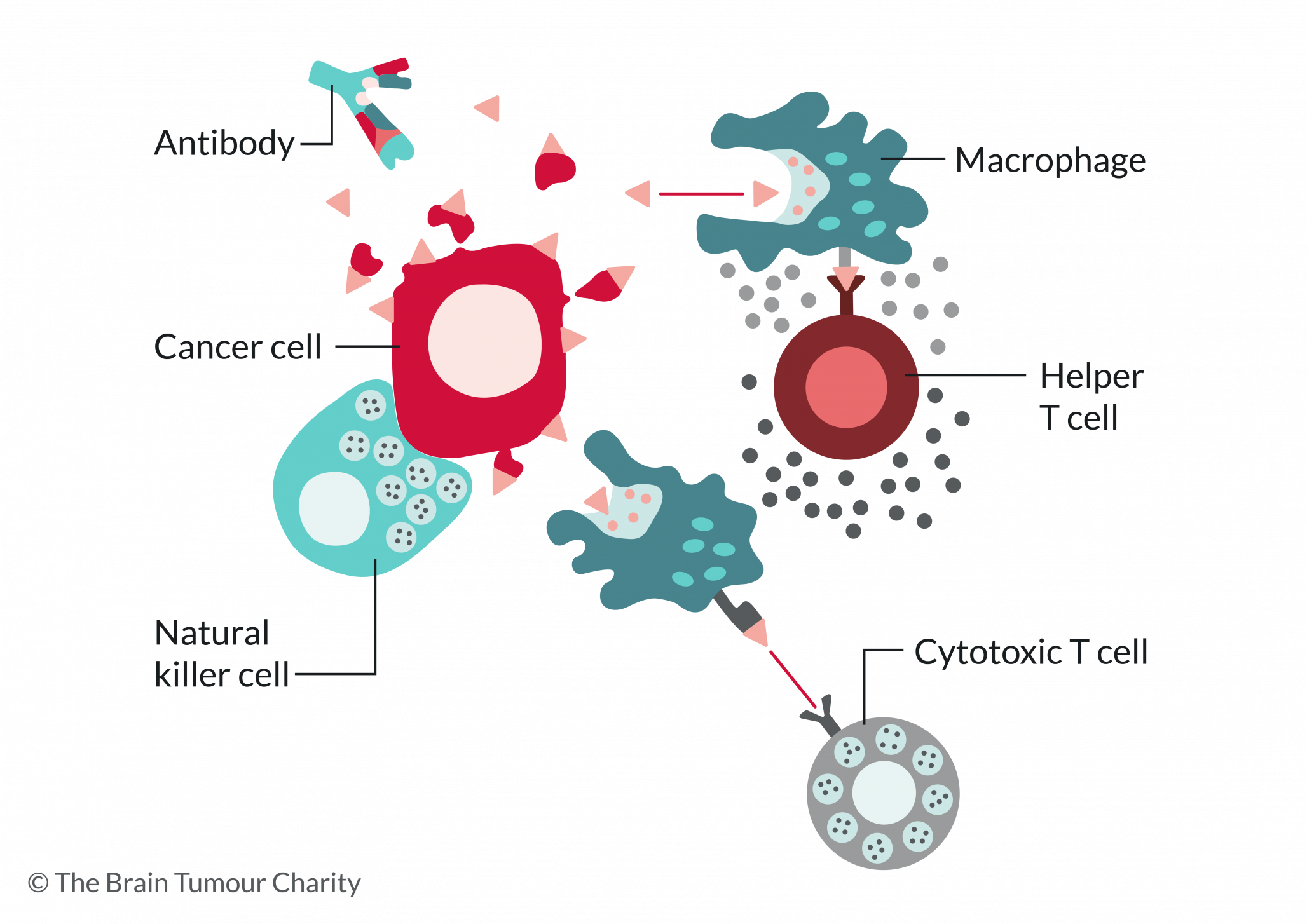What does the immune system do?
Your immune system is made up of various organs, special cells and substances within your body that help to protect you from infections and other diseases.

These organs, cells and substances can do this as they are able to recognise cells and substances that are normally found in your body and cells and substances that are not, such as tumour cells.
The immune system cells travel round your body seeking out any disease-causing organisms or substances or anything new that they don’t recognise. If they come across something, your immune system ‘raises an alarm’ and attacks the unknown substance. These ‘foreign’ substances are often referred to as ‘antigens’. The immune response can also destroy anything containing the foreign substance, such as tumour cells or germs.
When the foreign antigens are detected, special immune cells called B-cells are triggered to produce a substance that attaches to the antigen. These substances are special proteins called antibodies.
Although the antibodies find and attach to the antigens, they can’t kill them. This is left to another type of cell, called a T-cell, that are called into kill the foreign cell by giving it a lethal burst of chemicals.
Finally another type of immune cell, called a phagocyte, swallows and eats the destroyed antigen or cell containing the antigen.
Our brains and central nervous system (nerves) are separated from the body’s immune system by the blood-brain barrier. However, they have their own immune system called the ‘neuroimmune’ system that protects them from infection and foreign cells.
Analogy
If we imagine that tumour cells are like weeds, a gardener (B-cell) would walk around the garden (body) attaching a label (antibody) to every plant that they recognised as a weed (foreign antigen).
The label itself does not kill the weed, but it shows the gardener’s assistant (T-cell) which plants they should give a lethal spray of weed-killer to.
The gardening apprentice (phagocyte) then comes round and pulls up all the dead weeds to get rid of them from the garden.
(The gardener specialises in recognising one type of weed only, so there are teams of gardeners to make sure each type of weed is recognised and labelled.)
Harnessing the immune system to treat brain tumours
Researchers are excited about the possibility of using our body’s own immune systems to help fight cancer and other tumours. To be able to use the body’s natural defences against tumours has some potential advantages over current conventional treatments.
- It can reach areas where surgery cannot and may also be able to target stray cells that would otherwise be missed.
- It does not only attack rapidly dividing cells which some other treatments do, such as chemotherapy and radiotherapy. This means it can also attack slowly dividing or resting cells, such as tumour stem cells, which can be responsible for tumours regrowing.
- The immune system has a ‘memory’ in that it can ‘remember’ substances it has met and attacked before, so as soon as any tumour cells return it can immediately start attacking them again, helping to prevent regrowth.
- Read more about immunotherapy for brain tumours here.
Support and Information Services
Research & Clinical Trials Information
You can also join our active online community.
In this section
Share your experiences and help create change
By taking part in our Improving Brain Tumour Care surveys and sharing your experiences, you can help us improve treatment and care for everyone affected by a brain tumour.
